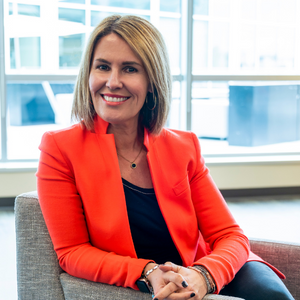Why the “E” in ESG Matters: Environmental Responsibility for Companies and Leaders
 While Earth Day serves as an annual reminder to appreciate our planet, the escalating effects of climate change highlight the importance of prioritizing environmental stewardship year-round. Corporations and businesses are increasingly focusing on integrating more innovative Environmental, Social, and Governance (ESG) criteria in their decision-making and investment strategies. While each component plays a vital role in sustainable business practices, the “E” in ESG is significant in driving a positive environmental impact while also creating long-term value for businesses.
While Earth Day serves as an annual reminder to appreciate our planet, the escalating effects of climate change highlight the importance of prioritizing environmental stewardship year-round. Corporations and businesses are increasingly focusing on integrating more innovative Environmental, Social, and Governance (ESG) criteria in their decision-making and investment strategies. While each component plays a vital role in sustainable business practices, the “E” in ESG is significant in driving a positive environmental impact while also creating long-term value for businesses.
Recent News in Business and Environmental Responsibility
According to the Morningstar report for the last quarter of 2023, “global sustainable funds experienced net outflows of USD 2.5 billion, marking the first time they entered negative territory. Despite the overall decline, European sustainable funds remained resilient and attracted USD 3.3 billion of net new money in Q4, primarily driven by passive funds. On the other hand, U.S. sustainable funds saw net outflows of USD 5 billion, contributing to a total of USD 13 billion outflows for the year.”
Interestingly, 2024 has already been a hotbed of progress and reversals with four leading banks announcing that they are leaving the Equator Principle formally due to Risk and Antitrust issues, but will continue to follow the tenets of the principle as a guide. Political backlash and special interests have cost BlackRock a self-disclosed revenue loss of $4 billion dollars with the recent example this past month whereby the Texas School Fund pulled away from Blackrock in support of Big Oil, stating Blackrock’s fund to be against state law which forbids boycotting fossil fuel.
While the volatility of the political landscape continues, there is no doubt that there are career opportunities forming from investment jobs to deeper compliance nuances for risk, legal, and compliance roles. The broader participation for ESG inside firms goes beyond the CTIO seat to every C-suite member with the consulting firms benchmarking and pitching to get companies ready for current and future legislation such as the ISSB standard IFRS S2. And the Global Stocktake is underway as countries plan for COP28 where they will assess the progress made toward mitigating global warming since the Paris Agreement in 2015. The results from the first-ever global stocktake will be discussed at COP28.
Navigating Environmental Challenges: Innovation, Trust, and Market Trends
Apple recently released a carbon neutral Apple Watch, the first in their lineup in working towards the ambitious goal of making every product carbon neutral by 2030. Technology and AI and startups in the space are driving innovation and fostering competitiveness. And it is innovation that can prevent or warn us of risks of climate change, including increased severe weather events, rising sea levels, and changes in temperature that can disrupt supply chains, cause infrastructure and property damage, and increase insurance costs, posing a significant threat to business operations and financial performance. The impact on the supply chain is long and deep with an example being that a 2022 drought in southwest China led to reduced hydropower production, cutting power to factories that supplied electronics and auto parts, and ultimately curtailed production for companies like Toyota, Volkswagen, and Foxconn.
As consumers and investors become more environmentally conscious, the value of brand reputation and stakeholder trust is particularly relevant. By showing a track record of environmentally responsible goals and outcomes, companies can gain the trust and buying power of consumers and investors. On the other hand, “greenwashing”, or making misleading claims about a company’s environmental impact, negatively impacts brand reputation and customer satisfaction. Showing a commitment to environmentally responsible practices is not only important for gaining consumer trust, but also in hiring and retaining employees. Like consumers, employees are interested in more than just paying lip service to “going green”, they also want to see tangible outcomes and be engaged in the process. Leaders can do more to address sustainability concerns transparently, building trust and credibility with stakeholders like consumers, employees, and investors.
The market is clued in to the mounting tide of support for environmentally responsible business practices, with investors and shareholders increasingly looking at companies’ environmental performance in considering their investment decisions. According to Morgan Stanley, more than half of individual investors say they plan to increase their allocations to sustainable investments in the next year, while more than 70% believe strong ESG practices can lead to higher returns. This shows that aligning with market expectations of environmental responsibility enhances companies’ attractiveness to investors and shareholders.
Wise Words from Top Women in ESG
Sustainability magazine named the Top 10 Women in ESG for 2023 who are worth checking out. The list of course is not exhaustive with so many great women having a role in the “E” in ESG, as it continues to play an important part in shaping corporate strategy, decision-making, and performance.
Ultimately change takes great negotiation skills and understanding. We recently profiled Susan Nickey, Executive Vice President and Chief Client Officer at HASI who astutely captures the nuance of the industry.
“When you’re trying to come up with a solution or break down a wall, it isn’t simply saying, ‘it needs to happen.’ You have to spend a lot of time thinking about creative solutions to make it work for an incumbent who might say ‘no, I don’t want that’, or ‘I’m not going to do that.’ It’s how you listen to both sides of an argument and come up with a creative solution. Thoughtfully parsed risk allocation, for example, can enable both parties to move forward in a way that they both deem is balanced and fair for them.”
The “E” in ESG is a fundamental aspect of corporate sustainability, responsible leadership, and long-term value creation. In the words of another of our recent profiles, Geneviève Piché, Head of Sustainable Finance and Advisory, Corporate Investment & Banking at Wells Fargo:
“Sustainability and climate efforts are about value creation. They are not check-the-box exercises. It’s about developing strategies that can drive value for companies while making the world a better place.”









